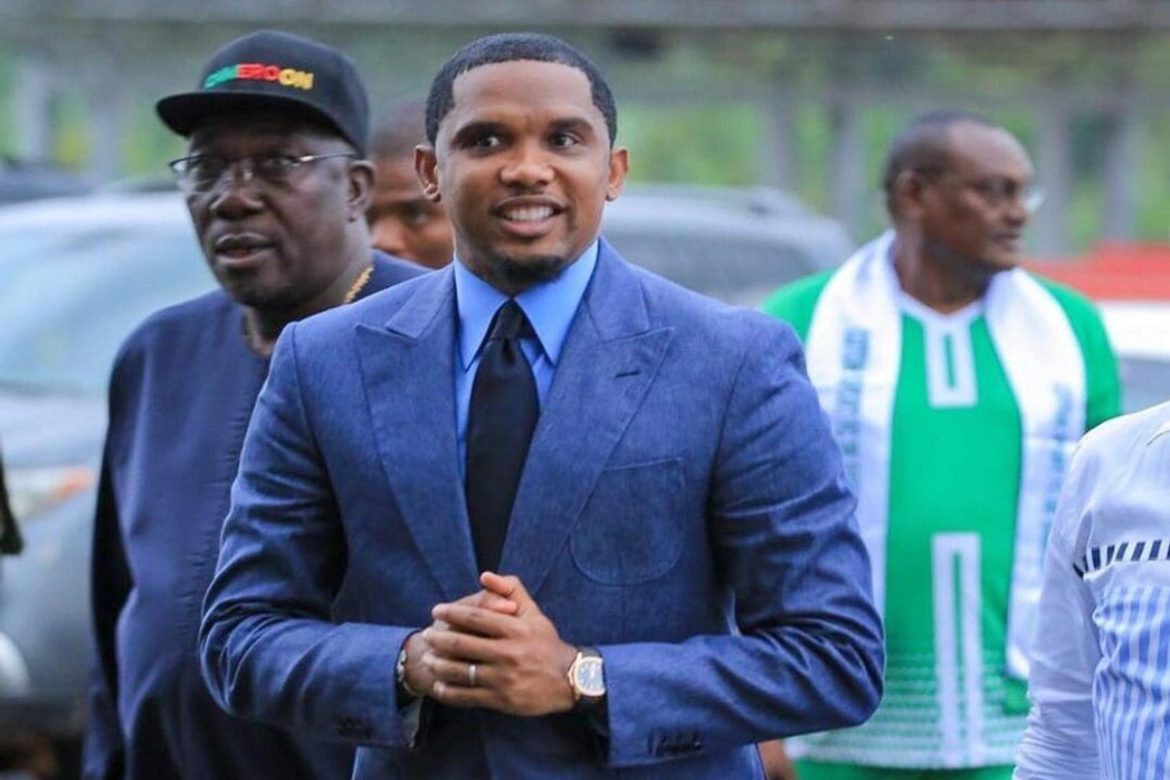African football icon and Cameroon Football Federation (FECAFOOT) president Samuel Eto’o is facing a potential five-year ban from all football-related activities by FIFA, following explosive allegations that he diverted over 300 million CFA francs (approx. $480,000) meant for the Cameroon national team into a personal account based in Qatar.
The looming sanction, tied to FIFA’s Article 29 on financial misconduct, could mark the biggest scandal of Eto’o’s post-playing career and send shockwaves through both Cameroonian football and the wider African football community.
The allegations surfaced earlier this week after internal documents and financial records were leaked to international sports watchdogs, prompting FIFA’s Ethics Committee to initiate a preliminary investigation.
According to the leaked documents, the funds earmarked for national team preparations and logistics were allegedly rerouted into a private Qatari bank account controlled by Eto’o during his time attending international engagements earlier this year.
FIFA has not officially named the source of the complaints but confirmed in a statement that it is “reviewing serious allegations concerning a senior football official from a CAF member nation.”
Under Article 29 of the FIFA Code of Ethics, officials found guilty of embezzlement, misappropriation, or abuse of position for personal gain can face bans of up to five years, along with financial penalties and possible referral to national legal authorities.
Eto’o, who assumed the presidency of FECAFOOT in December 2021, could become the most high-profile African football leader sanctioned under this rule.
As of press time, Samuel Eto’o has not issued an official statement. FECAFOOT has also remained silent on the growing controversy. Sources within the federation say an emergency executive meeting has been called for Thursday, amid mounting pressure from both domestic stakeholders and CAF (Confederation of African Football).
Attempts to reach Eto’o’s legal team for comment have so far been unsuccessful.
The news has stunned many Cameroonians, who revere Eto’o not only for his illustrious playing career with clubs like Barcelona, Inter Milan, and Chelsea, but also for what was seen as a reformist agenda at FECAFOOT.
“If this is true, it’s not just a betrayal of public trust, it’s a tragedy for African football,” said Jean-Claude Tamba, a veteran Cameroonian sports analyst. “Eto’o was seen as the bridge between the old guard and a new era.”
The fallout could derail upcoming national team preparations for the 2026 World Cup qualifiers and disrupt key youth development programs funded through federation grants.
FIFA’s Ethics Committee is expected to release an interim ruling within weeks. If found guilty, Eto’o would not only be barred from football globally but also face reputational ruin, and possibly legal prosecution.
As the investigation unfolds, the football world watches closely and anxiously as one of Africa’s most celebrated football sons faces his biggest off-the-pitch battle yet.


